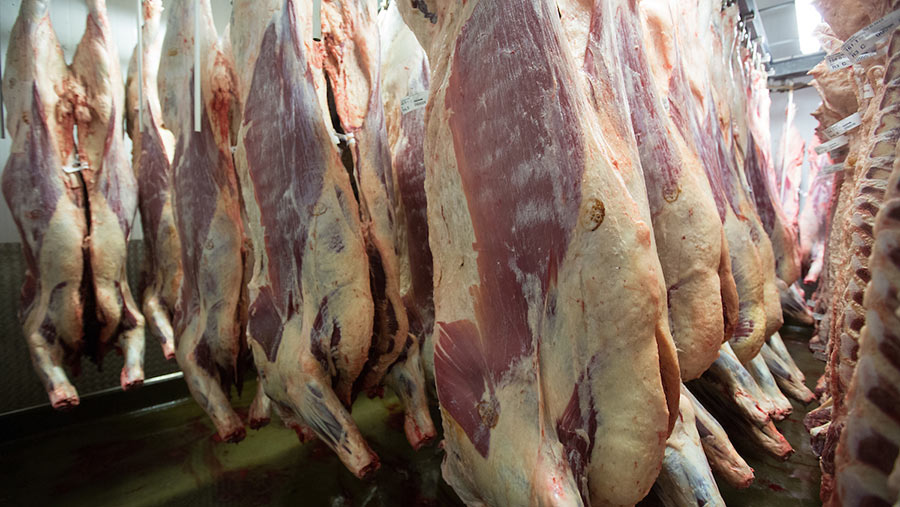New British food attaché in Washington seeks to lift meat exports
 © Tim Scrivener
© Tim Scrivener Better access for British beef to the US, and promotion of the quality and provenance of British lamb and pork, are among the top priorities for Will Surman, the recently appointed agriculture attaché at the British embassy in Washington.
One of several new agri-food counsellors appointed by the government this year, Mr Surman told the recent AHDB red meat export conference in London he had three immediate priorities.
See also: British lamb exported to US for first time in more than 20 years
“The first is with beef,” he explained. “There is an issue going on at the moment with tariff rate quotas [TRQs] and this affects countries that do not have a specific tariff arrangement in place, such as the UK, but also Japan, Ireland and the Netherlands.
“Outside this TRQ, these countries face a 26.4% tariff, which generally makes exporting unviable.
“The TRQ applies to 65,000t, and each year Brazil stockpiles beef in US warehouses, ready to be placed on the market at the beginning of the quota period, largely to the exclusion of those other exporting countries,” said Mr Surman.
Last year, for example, Brazil used 55,000t of the 65,000t available under the quota within the first three months.
The UK attaché said he was working with his Irish and Japanese counterparts, as well as US farming groups, to secure a fairer distribution from the US government.
Lamb and pork
On sheepmeat, Mr Surman said he was working closely with the AHDB to shift consumer sentiment towards lamb, which in the US is not generally regarded as a high-end product.
“Over 70% of the lamb that comes into the US comes from Australia and that is not a comparable product to British lamb,” he said.
“There is growing demand from the food service sector and the ethnic market, and the potential in the retail sector is huge, but quality is key, which is why it is so important for us to tell the story of how our lamb is produced.”
Mr Surman’s third priority relates to pork, with citizens in both California and Massachusetts having voted recently for stricter welfare requirements for pig production, such as lower stocking rates and a ban on sow stalls.
“This could present an opportunity for UK pork producers, who are already meeting those stricter requirements, as it could take some time for US production systems to be converted,” he said.
The comments came as trade figures reveal a significant upturn in red meat trade with the US.
“We haven’t had access for that long, but last year the US accounted for 4% of our total beef exports, which is really encouraging in a short space of time,” said Jonathan Eckley, AHDB head of international trade development.
“The value per tonne of these exports also punches well above their weight compared with other markets,” he added.
